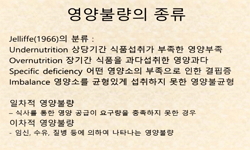본 연구는 신경계 질환을 지닌 노인의 연하관련 삶의 질을 파악하고 주관적 삼킴곤란, 영양상태, 사회적 지지가 연하관련 삶의 질에 미치는 영향을 알아보고자 시도된 서술적 조사연구이다....
http://chineseinput.net/에서 pinyin(병음)방식으로 중국어를 변환할 수 있습니다.
변환된 중국어를 복사하여 사용하시면 됩니다.
- 中文 을 입력하시려면 zhongwen을 입력하시고 space를누르시면됩니다.
- 北京 을 입력하시려면 beijing을 입력하시고 space를 누르시면 됩니다.
https://www.riss.kr/link?id=T15926377
- 저자
-
발행사항
서울 : 중앙대학교 건강간호대학원, 2021
-
학위논문사항
학위논문(석사) -- 중앙대학교 건강간호대학원 , 글로벌간호전공 , 2021. 8
-
발행연도
2021
-
작성언어
한국어
- 주제어
-
발행국(도시)
서울
-
기타서명
Factors related to dysphagia-specific quality of life in the aged patients with neurologic disorders
-
형태사항
iv, 78장 : 도표 ; 26 cm
-
일반주기명
중앙대학교 논문은 저작권에 의해 보호받습니다
지도교수: 김지수
참고문헌수록 -
UCI식별코드
I804:11052-000000235298
- DOI식별코드
- 소장기관
-
0
상세조회 -
0
다운로드
부가정보
국문 초록 (Abstract)
본 연구는 신경계 질환을 지닌 노인의 연하관련 삶의 질을 파악하고 주관적 삼킴곤란, 영양상태, 사회적 지지가 연하관련 삶의 질에 미치는 영향을 알아보고자 시도된 서술적 조사연구이다. 서울 소재 종합병원 신경과에서 신경계 질환을 진단받은 65세 이상 노인 외래 환자 120명을 대상으로 하였다. 연하관련 삶의 질을 측정하기 위한 연구도구는 한국판 MDADI를 이용하였고, 주관적 삼킴곤란은 K-SDQ, 영양상태는 MNA®-SF, 사회적지지는 MOS-SSS도구의 번역본을 이용하여 측정하였다. 연구 결과 연하관련 삶의 질과 주관적 삼킴곤란은 유의한 부적 상관관계가 있는 것으로 나타났으며, 영양상태와 사회적 지지는 유의한 정적 상관관계가 있는 것으로 나타났다. 대상자의 연하관련 삶의 질에 영향을 미치는 요인을 알기 위하여 단계선택법을 이용한 다중회귀분석 실시 결과 유의한 영향요인은 성별, 교육수준, 신경계 주 진단, 식사유형, 주관적 삼킴곤란, 사회적 지지의 하위 영역인 애정적 지지인 것으로 나타났다. 위 요인의 연하관련 삶의 질에 대한 설명력은 42.1%로 나타났다.
다국어 초록 (Multilingual Abstract)
This study is a descriptive research study attempting to understand the Dysphagia-specific quality of life in the aged patients with neurologic disorders and to find out the effects of perceived swallowing disturbance, nutritional status, and social s...
This study is a descriptive research study attempting to understand the Dysphagia-specific quality of life in the aged patients with neurologic disorders and to find out the effects of perceived swallowing disturbance, nutritional status, and social support on the Dysphagia-specific quality of life. This study included 120 outpatients aged 65 years or older who were diagnosed with neurological disorders at the Department of Neurology at a general hospital in Seoul. The Korean version of MDADI was used as a research tool to measure the Dysphagia-specific quality of life. Subjective swallowing disturbance was measured using K-SDQ, nutritional status was measured using MNA®-SF, and social support was measured using a translation of the MOS-SSS tool. As a result of the study, the Dysphagia-specific quality of life in the aged patients with neurologic disorders differed according to the general characteristics of education level, economic status, and type of diet. There was a significant negative correlation between the Dysphagia-specific quality of life and perceived swallowing disturbance. Nutritional status and social support were significantly positively correlated with Dysphagia-specific quality of life. Multiple regression analysis was performed to find out the factors related to Dysphagia-specific quality of life. As a result the study, factors related to Dysphagia-specific quality of life were gender, education level, neurological diagnosis, type of diet, perceived swallowing disturbance and affectionate support which is a sub-domain of social support. The explanatory power of the factors related to Dysphagia-specific quality of life was 42.1%.
목차 (Table of Contents)
- Ⅰ. 서 론 1
- 1. 연구의 필요성 1
- 2. 연구의 목적 3
- 3. 용어의 정의 4
- Ⅱ. 문헌 고찰 6
- Ⅰ. 서 론 1
- 1. 연구의 필요성 1
- 2. 연구의 목적 3
- 3. 용어의 정의 4
- Ⅱ. 문헌 고찰 6
- 1. 연하관련 삶의 질 6
- 2. 연하관련 삶의 질 영향요인 10
- 1) 주관적 삼킴곤란 10
- 2) 영양상태 13
- 3) 사회적 지지 15
- Ⅲ. 연구 방법 17
- 1. 연구 설계 17
- 2. 연구 대상 17
- 3. 연구 도구 18
- 4. 자료 수집 21
- 5. 윤리적 고려 21
- 6. 자료 분석 방법 22
- Ⅳ. 연구 결과 23
- 1. 대상자의 일반적 특성 23
- 2. 대상자의 주관적 삼킴곤란, 영양상태, 사회적 지지 및 연하관련 삶의 질 25
- 3. 대상자의 일반적 특성에 따른 연하관련 삶의 질 27
- 4. 대상자의 주관적 삼킴곤란, 영양상태, 사회적 지지와 연하관련 삶의 질 간의 관계 31
- 5. 대상자의 연하관련 삶의 질에 영향을 미치는 요인 33
- Ⅴ. 논의 36
- Ⅵ. 결론 및 제언 45
- 1. 결론 45
- 2. 제언 46
- 참고문헌 47
- 부 록 61
- 국문초록 75
- Abstract 77








